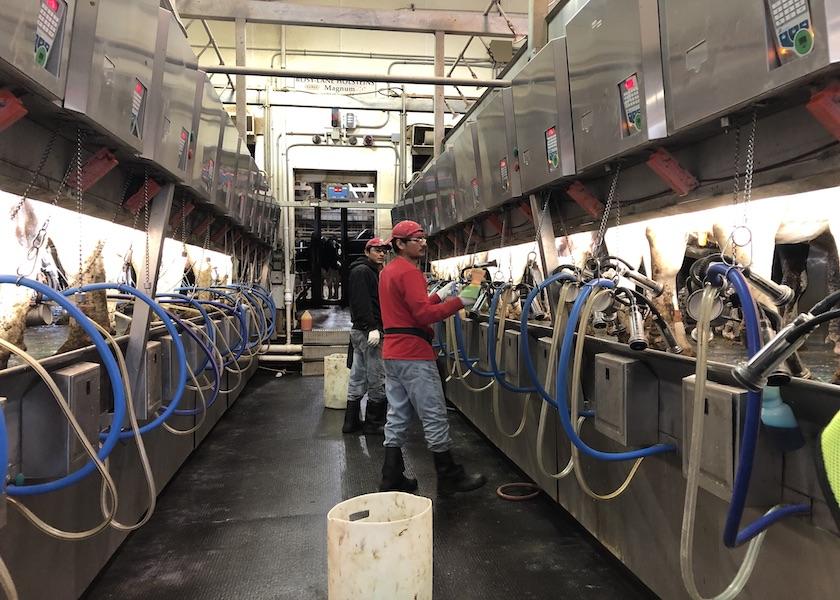Keep Farm Employees Safe During the Extreme Heat

For those whose livelihood depends upon working outdoors or in less than favorable conditions, this week looks to be quite difficult with higher-than-normal temperatures and humidity predicted. Meteorologists suggest parts of the upper Midwest could experience temperatures that land them in the categories of “high alert” and “emergency.”
When temperatures reach this level, it’s critical to take them seriously. While farmers do what they need to do to ensure livestock are cool and comfortable, it is also essential to check on other farmworkers and employees. Many farm employees may lack previous farm or other outdoor employment experience, so dealing with weather-related conditions may be new to them, not to mention the difference among individuals who may or may not be acclimatized to high heat conditions, explains Melissa O’Rourke, farm management specialist with Iowa State University Extension and Outreach.
In general, she says farm workers can become overheated in one of two ways:
- The heat from the environmental conditions in which they work.
- An individual generates internal heat through physical labor.
In states like Washington, permanent heat rules for outdoor workers are now in effect. The overall goal is to address minimum requirements to prevent heat-related illness and reduce traumatic injuries for outdoor workers associated with heat exposure.
According to the Occupational Safety and Health Administration (OSHA), almost half of all heat-related deaths occur on a worker’s very first day on the job, and over 70% of heat-related deaths occur during a worker’s first week. This is because workers who are new to working in warm environments may not be acclimatized to heat. Their bodies need time to adapt to working in hot conditions.
To protect new workers from heat hazards, schedule shorter shifts in the heat, separated by breaks, and monitor new workers closely for any symptoms of heat-related illness.
Other Helpful Tips
The Farm Bureau Financial Services shares other helpful tips that can help keep employees that work outdoors safe during the heat, including:
Dress the Part
Shield yourself from the sun by covering yourself up with a wide-brimmed hat and sunglasses. OHSA recommends wearing light-colored, loose-fitting, and breathable clothing like cotton or linen. A special body-cooling vest might also be a great investment if you live in a steamy climate.
Drink Up
The Centers for Disease Control and Prevention (CDC) recommends drinking 1 cup of water every 15 to 20 minutes during moderate activity. If you’re working outside in the heat, you’ll want to stay ahead of those numbers to avoid dehydration. Your urine is a good indicator as to whether you need to be drinking more water. Ideally, you want your urine to look clear. You might swear by your morning cup of joe to get you going but avoid drinking caffeine all day or adding sugary or alcoholic beverages to the mix. All of these items can dehydrate you.
Keep Your Cool
Find a shady spot where you and your team can take frequent breaks during hot weather. That could be the air-conditioned cab of your truck or even an outbuilding. Eat regular meals and include a lightly salted snack or two throughout the day for energy and balance electrolytes. If possible, schedule demanding tasks for early morning or evening when it’s cooler.
Mind Your Meds
Your body temperature might have difficulty cooling down or it may heat up more quickly if you take certain medications or have certain medical conditions. Talk to your physician before working in the heat this summer to find out if you’re at an increased risk for heat-related illness and need to take additional precautions.
Know the Symptoms
Heat-related illnesses can sneak up quickly. Keep an eye out for the warning signs and act fast in the event of heat stroke, heat exhaustion and heat cramps.
- Heat stroke happens when the body can no longer control its temperature and is unable to cool down. Heat stroke is a medical emergency, and you should call 911 immediately.
- Heat exhaustion is the body’s response to dehydration. If you are experiencing signs of heat exhaustion, ask a fellow worker or family member for assistance; you shouldn’t be left alone, and you may need medical treatment.
- Heat cramps occur when your body sweats out too much salt and can also be a sign of heat exhaustion. Drink a sports drink or try water with a salty snack. Seek medical attention if you’re on a low-sodium diet, have heart issues or if your cramps don’t go away after an hour.







